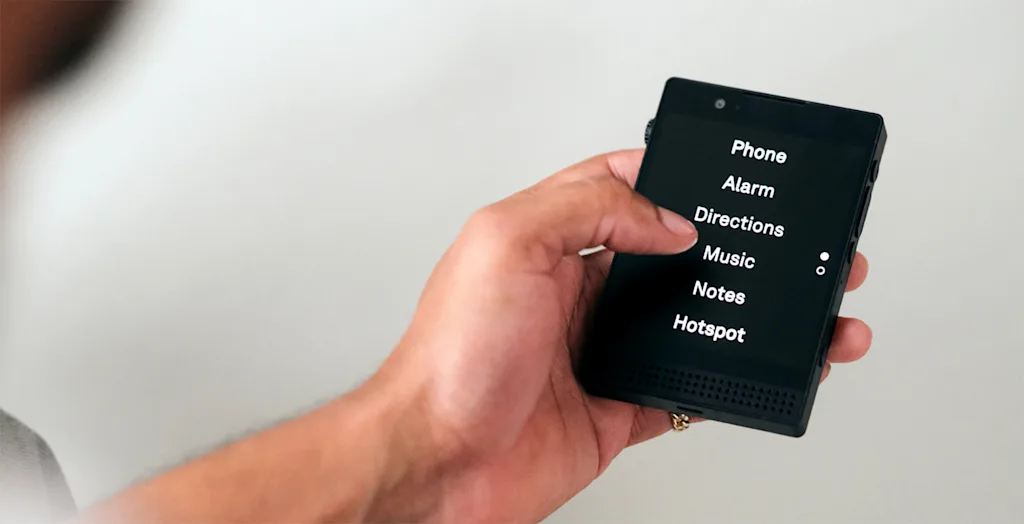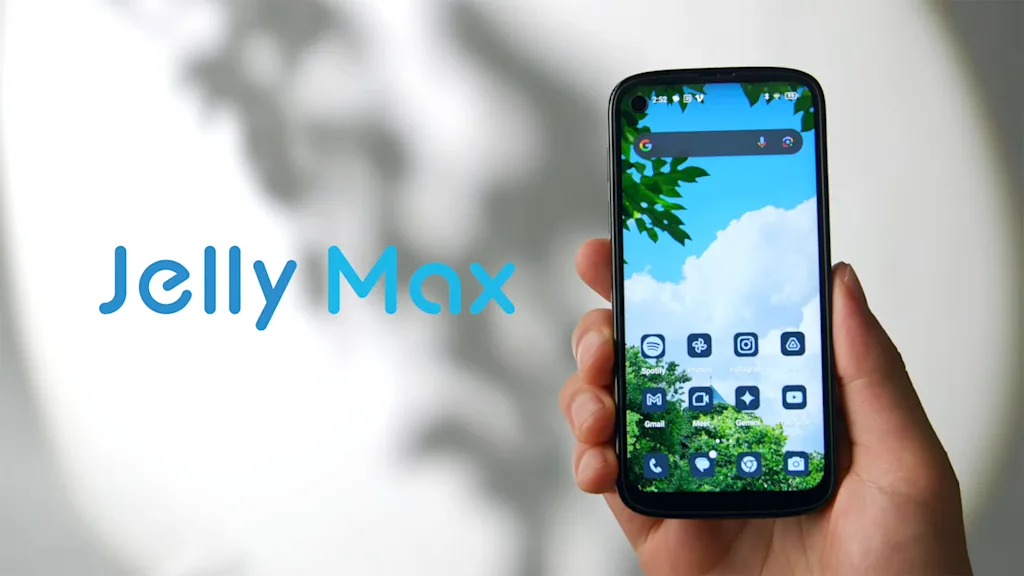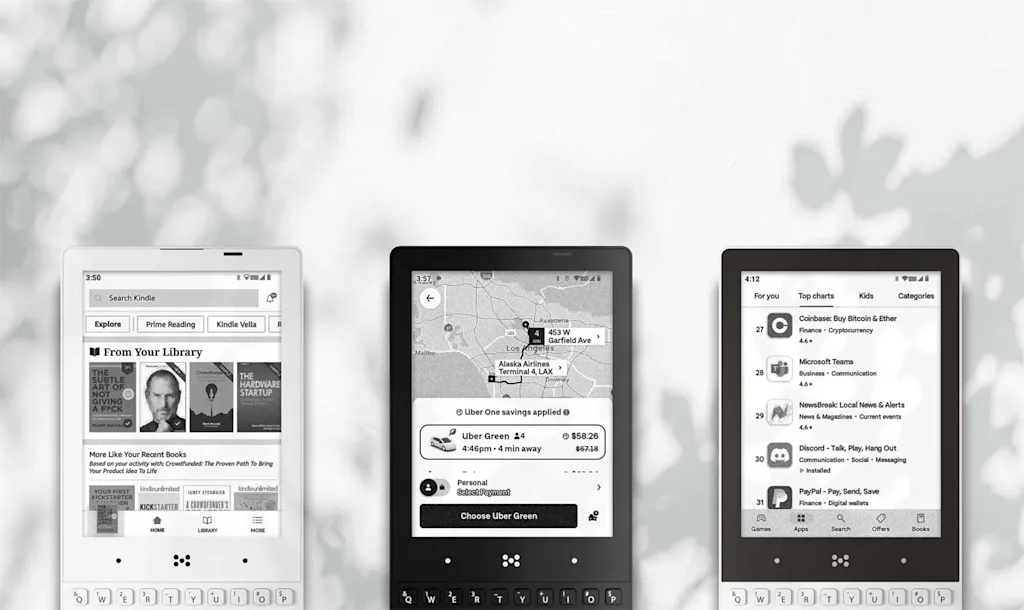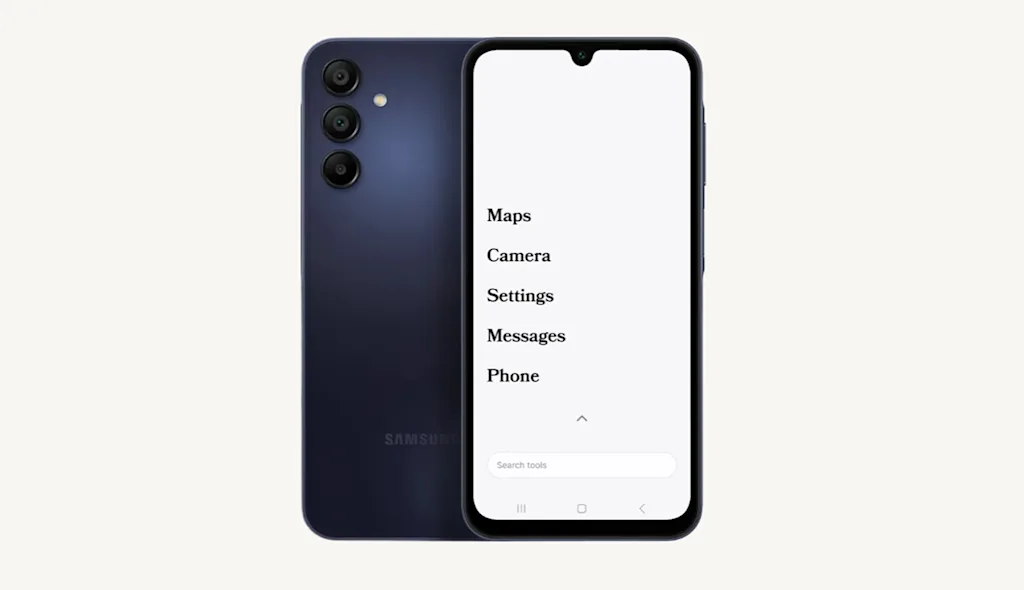Let’s be honest: Your phone is a jerk. A loud, demanding, little pocket-size jerk that never stops buzzing, dinging, and begging for your attention. It’s the first thing you see in the morning and the last thing you see at night. Enough!
Now, I’m not talking about tossing your phone into a volcano. I’m talking about swapping it out for something simpler.
And you don’t have to go full Luddite. Here are some unique options that scratch the itch of modern connectivity without all the noise.
Light Phone III

The Light Phone is a name that’s become a philosophical statement, and the Light Phone III is the next evolution in simplicity. Make calls, set alarms, get directions, use the calendar, take notes, and . . . well, that’s about it.
The E Ink screen from previous Light Phones is gone, replaced with a matte AMOLED (active-matrix organic light-emitting diode) display. It’s still black and white and utterly boring, but it’s more responsive. And it’s got a stripped-down, point-and-shoot camera along with other modern comforts like 5G connectivity, USB-C charging, NFC (near-field communication), and a fingerprint sensor.
The phone is available to preorder for $699 and is scheduled to ship in September. If you can’t wait that long, check out its $299 predecessor or the similar Mudita Kompakt.
Unihertz Jelly Max

The Unihertz Jelly Max unapologetically answers a question no one asked: What if a phone had a 5-inch screen and were crammed into a rugged, chunky, see-through body?
This $340 phone runs a modern-ish version of Android, which means you can download all the apps you want. But the screen is a little too small for comfortable browsing. The phone itself is a brick. The form factor discourages a lot of casual, mindless use.
It’s great for someone who needs the power of Android but wants to be reminded with every physical interaction that a phone is a tool, not a lifestyle.
The Minimal Phone

The Minimal Phone knows you love typing, but it also understands that your iPhone is an endless black hole of distraction. The solution? A full QWERTY keyboard and a proper E Ink screen, just like a Kindle.
Available for preorder, this $400 to $500 phone isn’t for scrolling through Instagram stories or cruising TikTok all day. It runs a custom version of Android that has an app store with only the essentials.
The physical keyboard and the black-and-white screen are brilliant psychological deterrents. The only thing you’ll be tempted to do is write an email or a very long text message. It’s a phone designed for anything but mindless consumption.
Wisephone II

Now for a twist. The $400 Wisephone II looks like a smartphone with a big, bright screen and a familiar rectangular shape. Oh, and it’s got a Samsung logo on the back, just like . . . wait a minute: This is a Samsung phone.
It’s actually more than that. It runs on a deeply modified version of Android: no social media, no explicit content, and no web browser.
Its purpose is to handle calls, texts, photos, and apps that aren’t built to monetize your attention. Basically, a modern device without the digital baggage that comes with it.
Aside from the $400 price tag for the phone, you’ll need a Wisephone service plan (from $25 to $70 per month), or you can use your own plan and pay just $15 per month for the customized operating system, a curated list of apps, and software support.
Войдите, чтобы добавить комментарий
Другие сообщения в этой группе

Forget Cowboy Carter or the Eras tour, the hottest ticket this year is for your favorite podcast.
Content creator tours sold nearly 500% more tickets this year compared to 20

In late July, the Trump administration released its long-awaited AI Action Pla

Matthew Williams has slept very little since he learned about Sacha Stone’s plan to build a “sovereign” micronation on 60 acres of land near his home in rural Tennessee. What began as a quic


I don’t know if you’ve noticed, but email scams are getting surprisingly sophisticated.
We’ve had a handful of instances here at The Intelligence International Headquarters where we’ve h

Interest in virtual private networks (VPNs) has surged in America and Europe this year. Countries on both sides of the Atlantic have recently enacted new age-verification laws designed to prevent

Instagram’s new location-sharing Map feature is raising privacy concerns among some users, who worry their whereab
